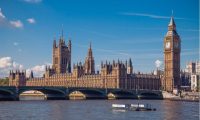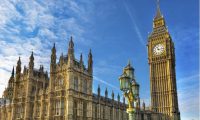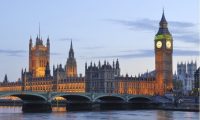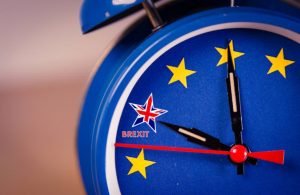Ready for Brexit is independent and objective. It aims to help businesses and organisations manage the challenges and opportunities that Brexit brings.
See member benefits 〉

Think tank the Institute for Government’s latest white paper Voting on Brexit: Parliament’s role before 31 October, outlines why a No-Deal Brexit will be much harder for Parliament to stop second time around. Anna Tobin reports
The Institute of Government research explains that when MPs return to Parliament after their summer recess there will be less than two months before the UK is set to leave the EU. The options the UK faces are the same as they were in March: leave with a deal, leave without a deal, seek an extension to the leaving date or unilaterally revoke Article 50.
What has changed though is the Prime Minister. Boris Johnson has made clear that if the UK is unable to leave with a renegotiated deal on 31 October then the UK will leave without a deal. And the Institute for Government says those MPs trying to make their voices heard will have far fewer opportunities to do so this time. Consequently, the Institute for Government paper concludes:
- It is very unlikely the UK will be able to leave the EU with a deal on 31 October
- MPs can express opposition to no deal but that alone will not prevent it
- Backbenchers have very few opportunities to legislate to stop no deal
- A vote of no confidence would not necessarily stop no deal
- There is little time to hold a general election before 31 October
- A second referendum can only happen with government support
Click here to read the full paper Voting on Brexit: Parliament’s role before 31 October
Sign up to Ready for Brexit membership now and download your planning guide for a No Deal Brexit on 31 October 2019
No Deal Brexit news
Ready for Brexit’s Consulting service helps businesses prepare for Brexit
RECENT NEWS
EDITOR’S NOTE | NEWS | ANALYSIS | INTERVIEW
WHY JOIN READY FOR BREXIT
NO DEAL BREXIT
ACTION PLAN
The No Deal Brexit Action Plan maps out the time available and the time required to undertake the processes to prepare your business for a No Deal Brexit.

Your business will need to modify or completely change procedures to prepare for Brexit. Brexlists help you take a rigorous and structured approach to your preparations:
- The Executive Summary Brexlist Brexit checklist, as its name implies, highlights the key issues
- The Business Functions Brexlist Brexit checklist maps onto the key business functions in a company
- The Directory Brexlist Brexit checklist maps onto the topic headings in our Brexit Directory

highlight what needs to be done, and by when, to ensure that all parts of your supply chain are prepared for Brexit:
- Identify the key questions for your business
- Share key learnings with your business partners
- Identify the key challenges and opportunities
- Highlight key internal and external priorities

BREXIT
DIRECTORY
The Brexit Directory is an extensive database of information and links organised by business function to help you find the information your business needs to know.

























































































